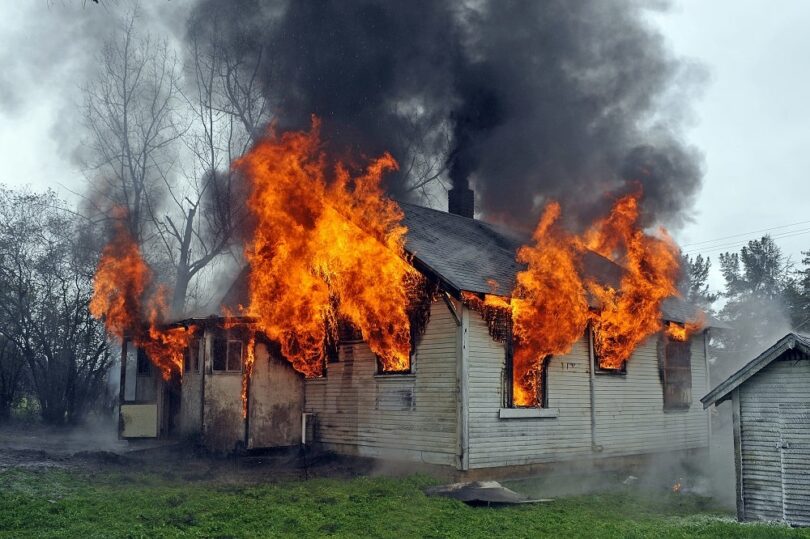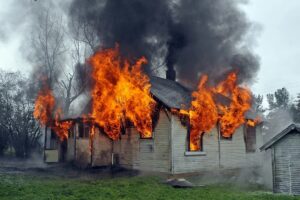Does Renter’s Insurance Cover Fire Damage?
A fire accident in the home is a devastating experience for every tenant, accumulating losses that run into thousands of dollars. Does renter’s insurance cover fire damage? What kind of fire damages? Nobody would like to lose their properties. Likewise, bearing the cost of replacing every single one of them. No, not me.
Tenants are generally mandated to purchase renter’s insurance in the case of any incident;(Unless you know you are capable of replacing everything from your pocket). Most apartments lease contract even comes with a compulsory clause for that. A tenant’s insurance policy would provide coverage for the tenant’s personal property and belongings and personal liability without including the home structure.
What does my Renters Insurance Cover? Does it include fire?
Most standard renters insurance policy would offer you protection for your property. This coverage would include the following;
- Power Surge.
- Fire
- Vandalism
- Theft
- Water Damage
- Smoke Damage
- Mold
- Lightening
- Volcano
- Snow and Ice collapse
- And any other accidents that are out of your control
A standard renters insurance policy will cover for fire damages to your personal property, medical payments, liability, and loss of use of the insured property caused by the fire outbreak.
Renter’s insurance for personal property damaged by fire
Damage to private property is a covered scope under content or personal property coverage on your renter’s insurance. However, most insurers would offer Replacement cost vs. Actual cost coverage; this means an insurer is offering the exact value of your property on the receipt instead of the actual present cost of replacement. You should make sure to check your policy for ‘replacement cost content.’
Renter’s insurance for liability caused by fire
In the event of a fire outbreak, will renter’s insurance cover for liability? The answer is yes. A renters insurance liability coverage kicks in if any third party gets injured or suffers property damages as a result of a fire outbreak in your house.
Renter’s insurance for ‘Medical payments to others.’
Your renter’s insurance will cover for damages that will incur medical payments to others caused by fire. Medical payments to others are small no-fault leverage for when you injure someone. Here fault is not required to be proven or worth proving for a minor injury. Let’s say a fire you put a fire out, but it causes a small portion of the roof of your neighbor to cave in, and it falls on his leg as he is trying to help out from his side, medical payments to others would cover for that sort of need.
Renter’s insurance for property ‘Loss of use’ caused by fire.
Loss of use is coverage that covers situations where your apartment becomes inhabitable. In this case, fire is the cause. It would cover additional living expenses. Usually, these would include hotel, feeding, and maybe car rental fee during the period your house gets repaired after a fire.
What does my Renters Insurance not cover?
In the case of fire damage, there are certain conditions that your renter’s insurance does not cover.
1. Renter’s insurance does not cover for the structure of the home you live
Having a renter’s insurance leaves damages to the building to the homeowner, the homeowner owner would already have a landlord policy to cover this.
2.Renter’s insurance has a limit for expensive personal belongings within a range of $1500 – $2500.
Belongings that might cost more than that would not be covered. It would be best if you considered an add-on policy to cover those expensive ones. Check with your insurer to know how much limit they set and if you are going to make an add-on. Usually, this would affect you if you have personal effects like an expensive set of gold rings or customized computers.
3.Renter’s insurance wouldn’t cover a roommate’s personal belongings not listed in the policy.
Roommate’s belonging will only be covered if they get listed on the plan. Moreover, you should know that you and your roommate would split the coverage for all possession. It is recommended not to add a roommate unless they are a relative or spouse.
What does my landlord get to do
You, as the tenant and the landlord, both have specific responsibilities in providing insurance protection to your home. As stated, if you have renter’s insurance and there happen to be a fire outbreak, you can only get the coverage of your personal property and personal liabilities.
Your landlord is responsible for the damage incurred by the building’s structure and fixtures. With the cabinets and plumbing fixing included. If there is a fire outbreak that caused damage to your home, the landlord will be the one responsible for having these fixed. Luckily, he may already have a landlord insurance policy for that.
How Do You Get Your Renters Insurance Pay In the case of a Fire Mishap?
Every insurer will only provide you with coverage in the case of a fire incident if you file a claim. A claim is a request you make to your insurer to compensate you for a covered loss. Let’s say a fire outbreak occurred, you should follow the following steps to ensure your renter’s insurance payout.
Steps to ensure your renter’s insurance payout.
- First of all, you should create an inventory: You should take stock of all your possessions along with documents that determine their value, these would include all receipts.
- Next, you should document the damage: You should outline all damaged items before going to file a claim.
- You should formally file the claim: Contact your insurer to begin the claims process. Your insurer will provide you with the necessary forms and request documentation. For sure, there will be a claims adjuster assessing the damage, and the adjuster will determine your reimbursement.
Conclusion
These steps above-listed can be a lengthy process. Nevertheless, you must provide as much correct information as you can use these information provided will help to accelerate your claims process.
Ultimately, helping a timely compensation for your loss. On the whole, this will also help you avoid filing claims for later undiscovered damages.







